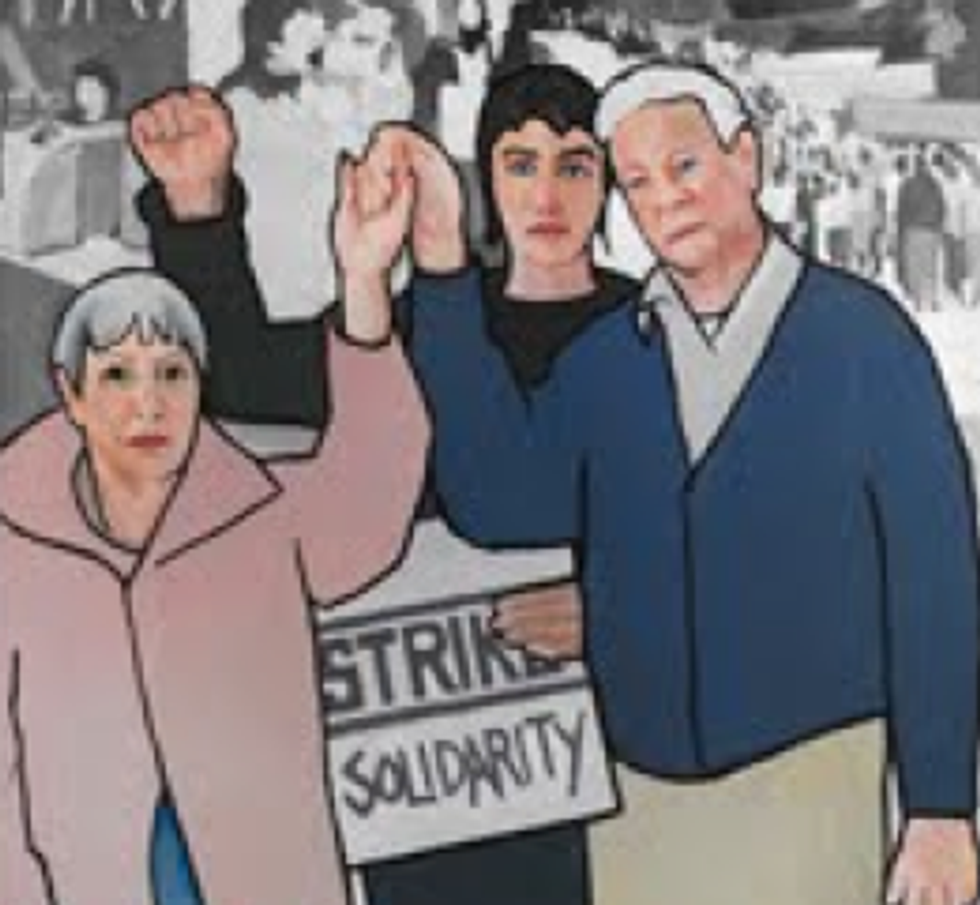In honor of the latest dreary news that exactly zero net jobs were created in August, the corporate CEOs who ship our jobs overseas, and the budget cutters in Washington whose priorities lie elsewhere, let's just rechristen the September holiday "Un-Labor" Day.
For nearly 14 million unemployed Americans, as well as nine million more who have had their paychecks and hours cut because of the economy, the idea of celebrating Labor Day this year is a cruel joke.
Labor Day was meant to honor American men and women who did the hard work and heavy lifting that built the world's biggest, most productive and once prosperous economy.
Make no mistake, the contributions of American Labor - weekends, the eight-hour work day, child labor laws, a 40-hour week, workplace health and safety, all aspects of American life that we now take for granted - fully deserve the traditional Labor Day picnic and civic parade down main street.
But after the Category 5 economic hurricane triggered by Wall Street greed, and indifference to Main Street communities by Washington, this isn't the year for parades and picnics. With double-digit unemployment, economic uncertainty, deep political unease, and widespread unhappiness, this is the year for Un-labor Day.
Consider that the average unemployed worker has been without a job 40 weeks, the longest span since that data was first collected in 1948. Remember that U.S.-based corporations the past decade cut 2.9 million U.S. jobs, while adding 2.4 million jobs in other countries.
Since the recession was declared "over" in June 2009, just one percent of economic growth has gone to wages and salaries, compared to 50 percent in the first 18 months after the 1991-1992 recession, and 25 percent for the same span after the 1981-82 recession.
One alarming consequence is the new Grand Canyon of income disparity, now the highest ever in the U.S., surpassing the Great Depression - of which inequality was a major cause. Inequality is now worse in the U.S. than in Bangladesh, much of sub-Sahara Africa and other noted poverty-stricken nations.
The crisis is not because of lack of wealth in the U.S. Corporate profits in 2010 rose at the fastest rate in 60 years. And the big banks and other institutions have spent $2.46 trillion in bailout funds. That same $2.46 trillion could have created 63.3 million jobs at a national median wage of $38,844 per year.
America's nurses, who are appalled at the income disparities, at the broad declines in health and living conditions, poor nutrition and high medical bills, and the economic stress they see in their own families, have sounded the call for action.
Nurses propose a tax on Wall Street financial transactions to help pay for healing the nation and creating new jobs.
On September 1, thousands of nurses, joined by others fed up with inaction in Washington, brought that message to the district offices of some 60 Congress members in 21 states, and set up soup kitchens, health clinics, speak outs and street theater to emphasize the point.
Because it was Wall Street's cavalier and criminal shenanigans that devastated Main Street and crushed the hopes and dreams of millions of hard working, tax-paying Americans. All while the bailed out CEOs took home lavish bonuses, and 25 top hedge fund managers have made $22 billion.
A modest tax of just half a penny on every dollar of trading of stocks, derivatives, currencies, credit default swaps and other Wall Street transactions could raise hundreds of billions of dollars every year to fund the programs that are desperately needed to reduce the pain and suffering inflicted on so many families who feel abandoned in communities across this nation.
A similar tax, already in place in Great Britain and many of the fastest growing markets in Asia, may soon be also adopted by the 27 nations of the European Union.
Our goal is a Main Street Contract for America with good jobs, accessible quality education and health care for everyone, and freedom from hunger and homelessness. For America's nurses, it's the most meaningful way to turn Un-Labor Day back to Labor Day.




